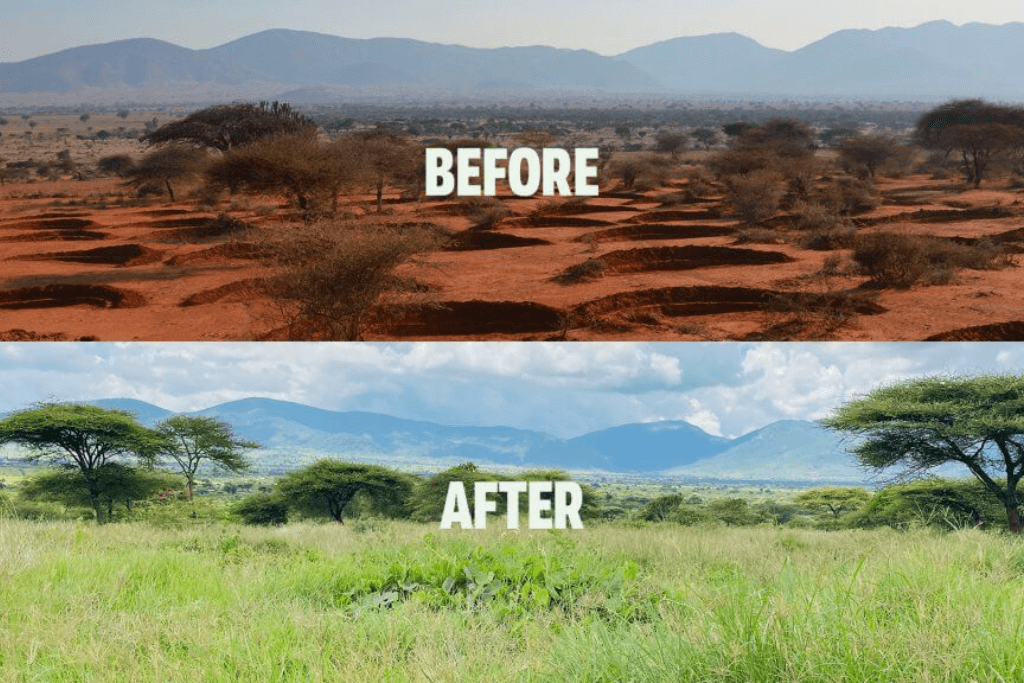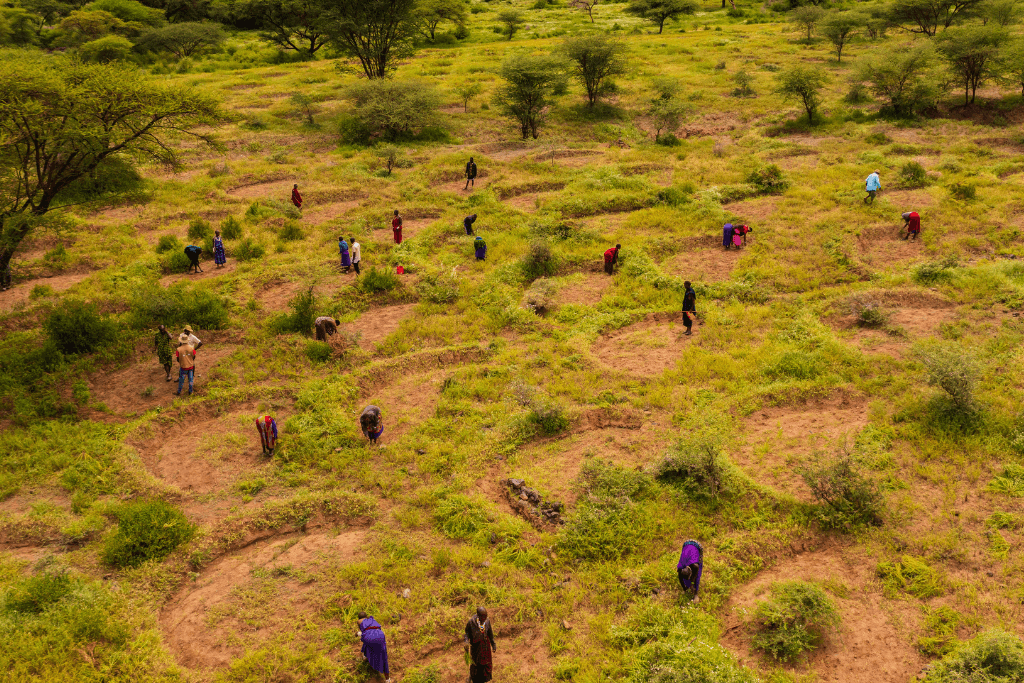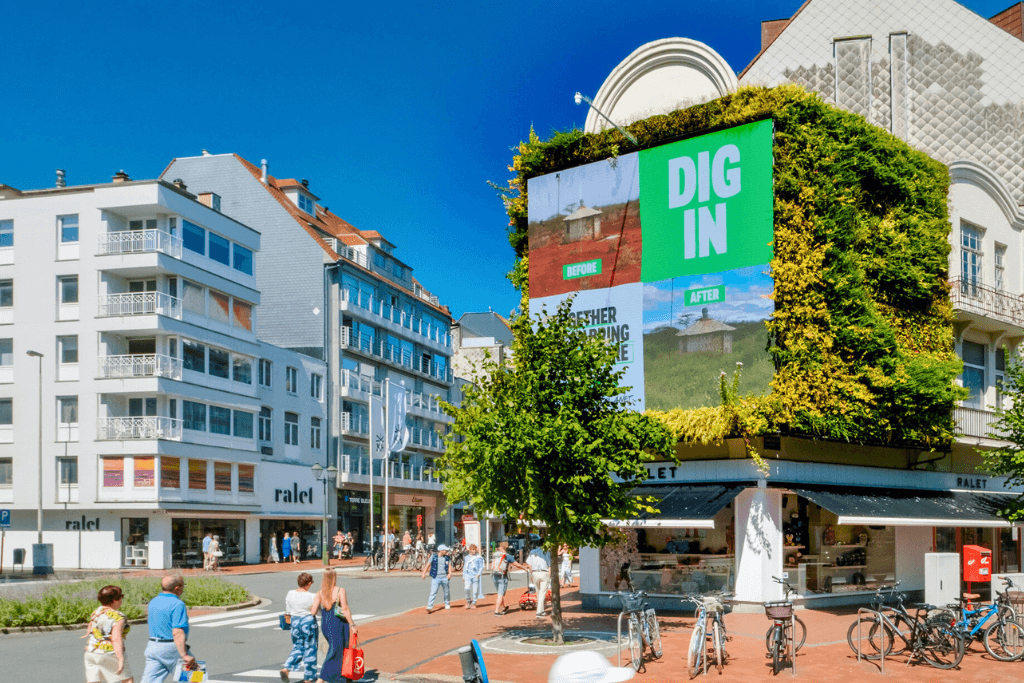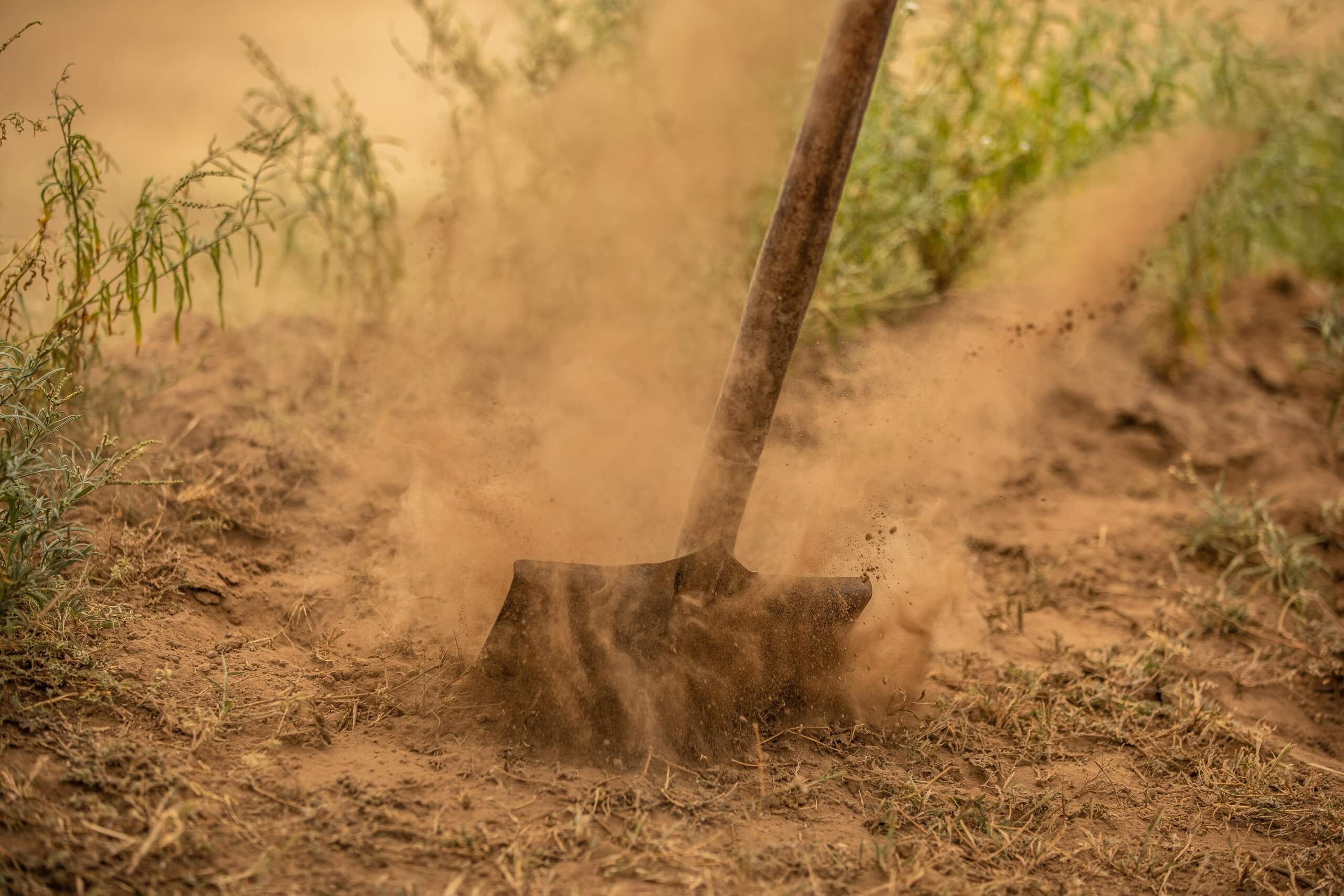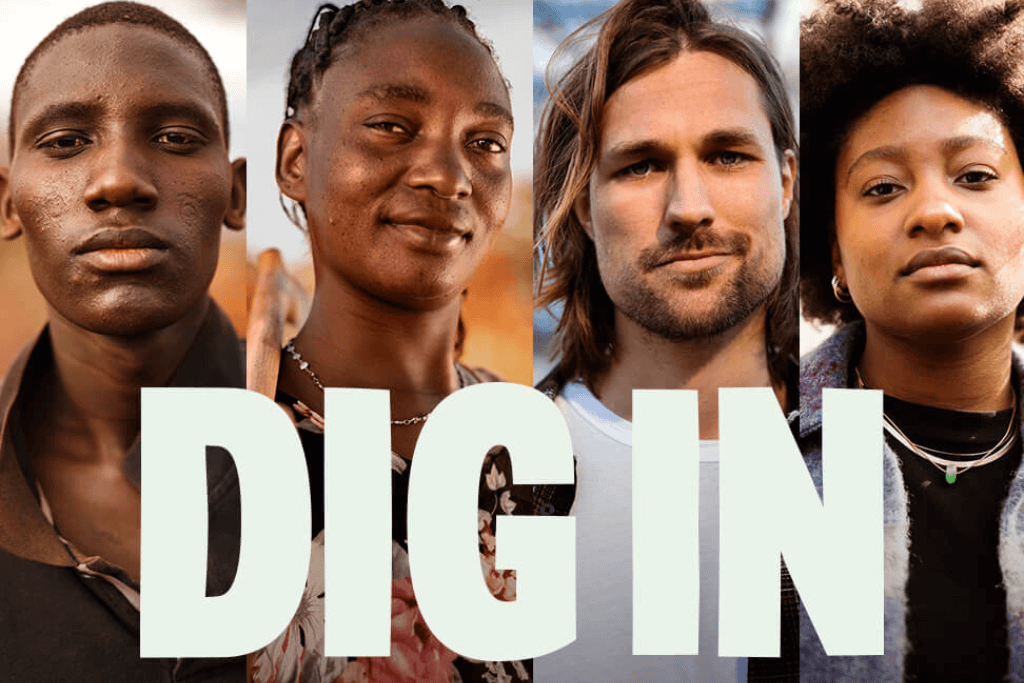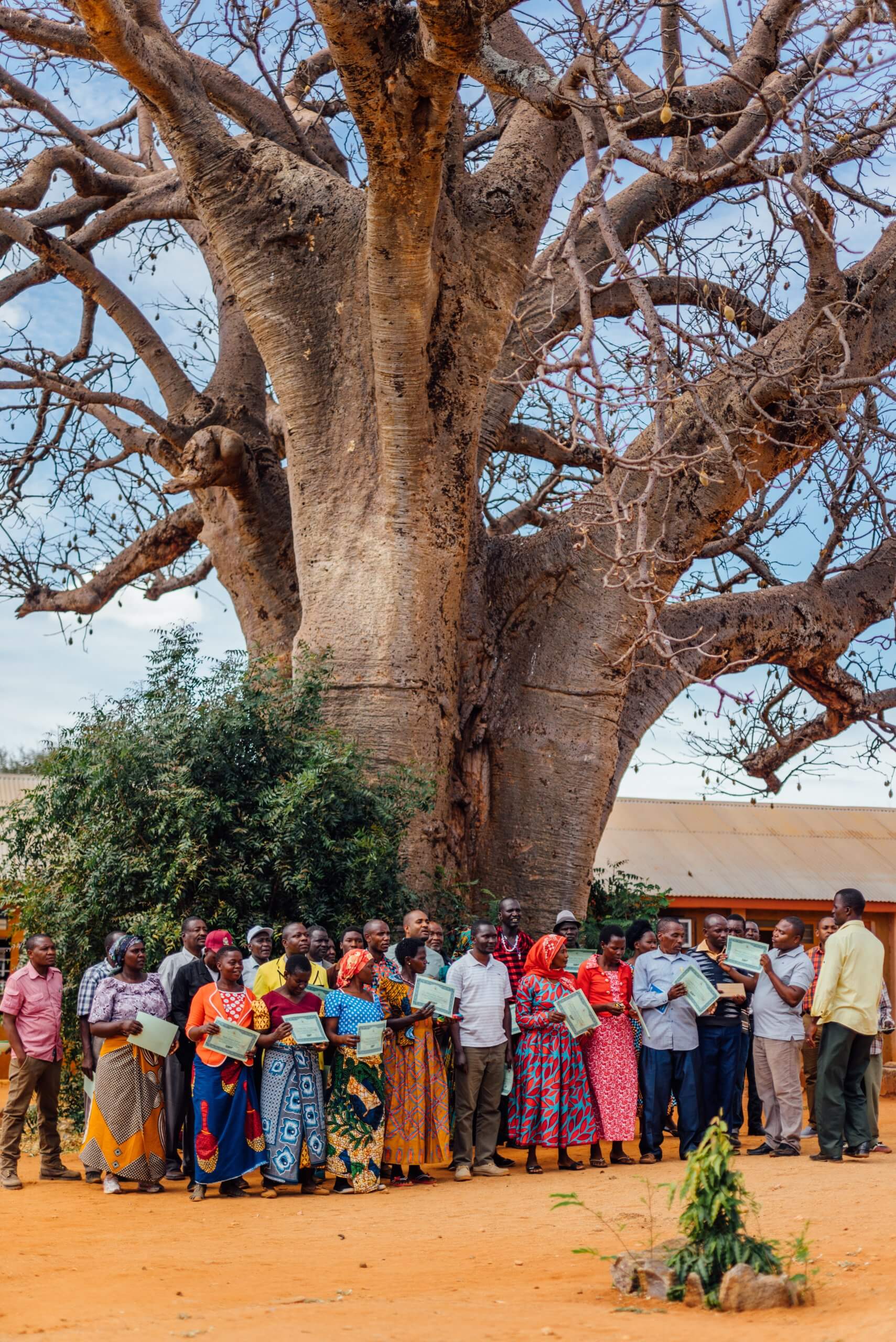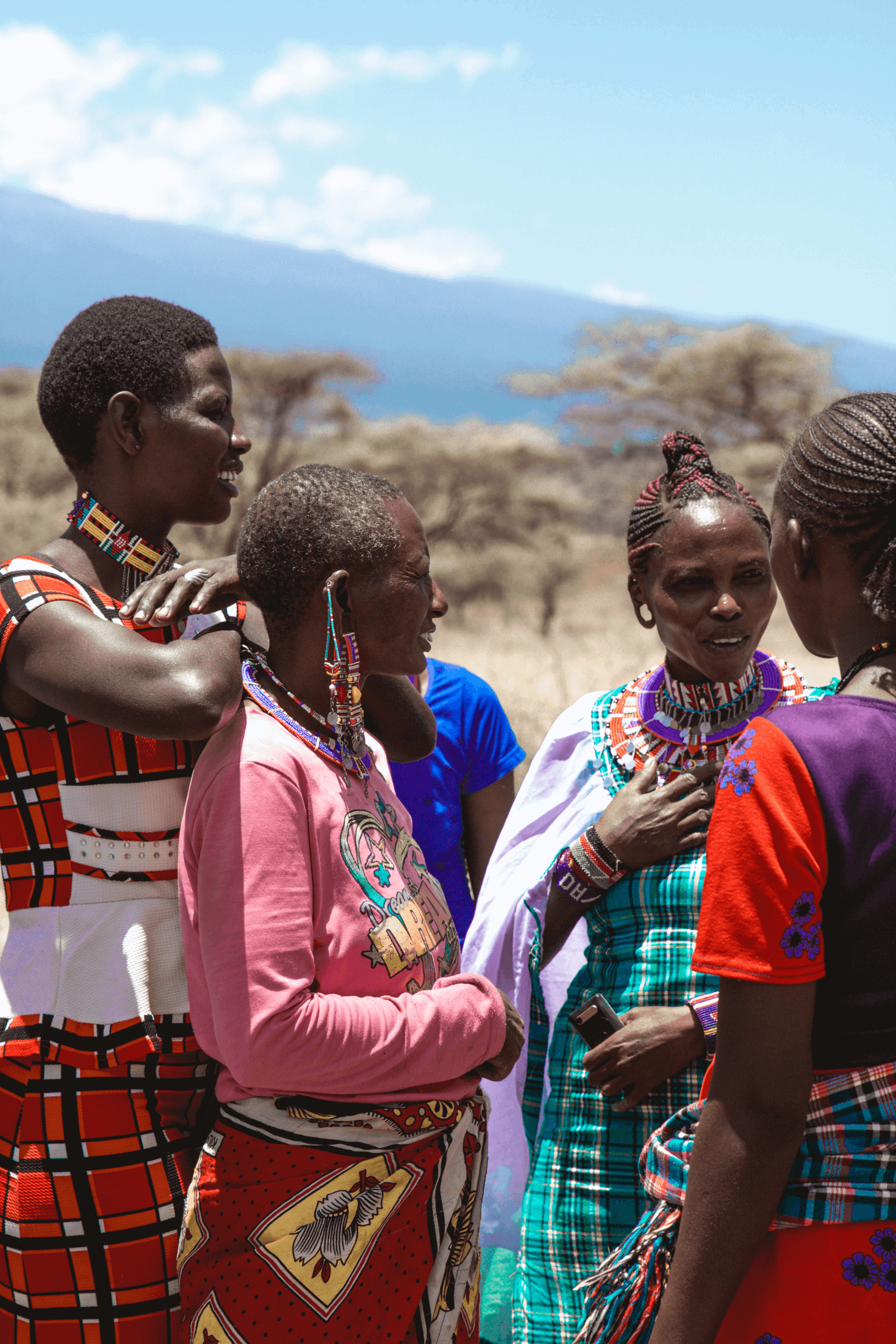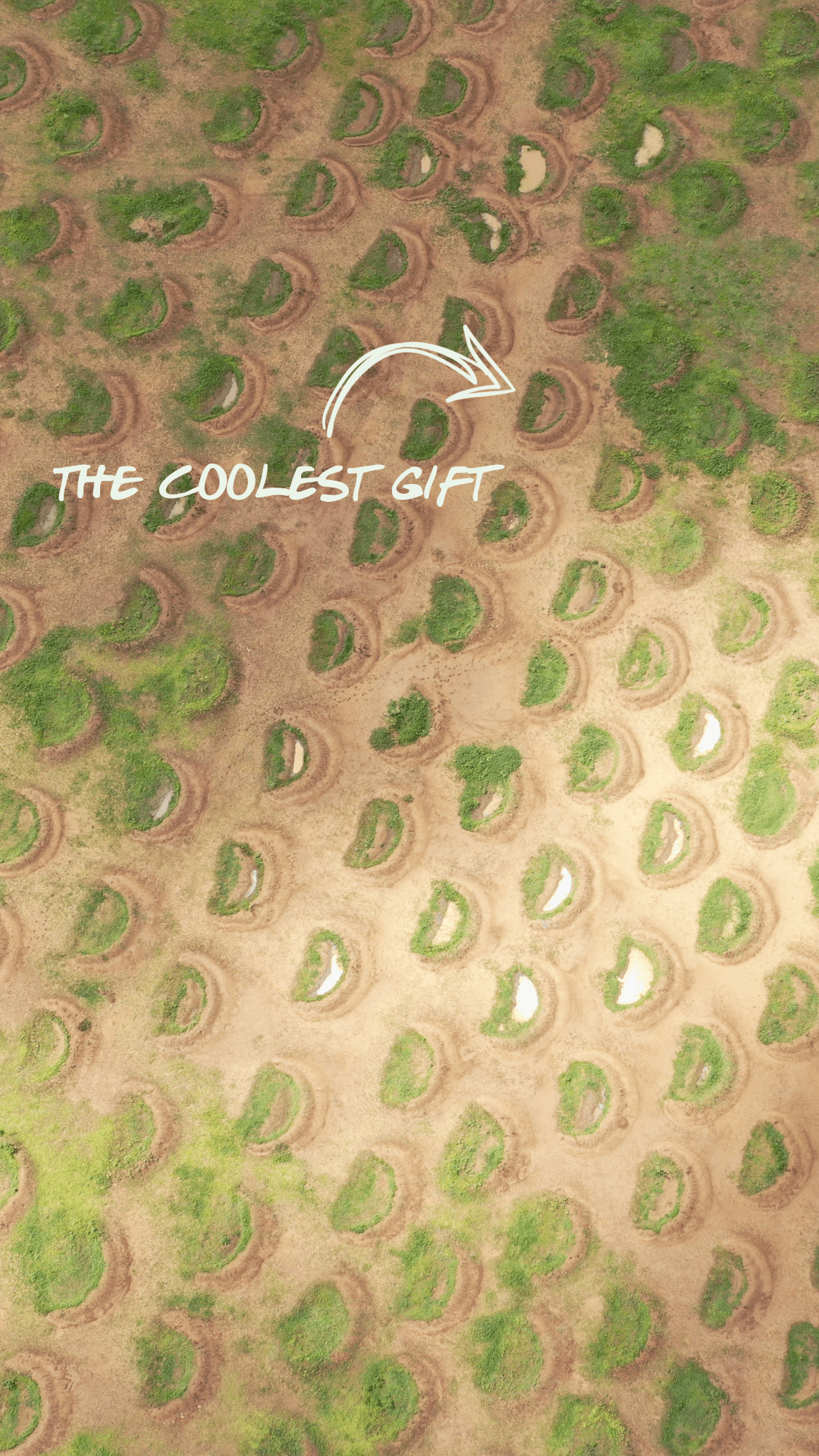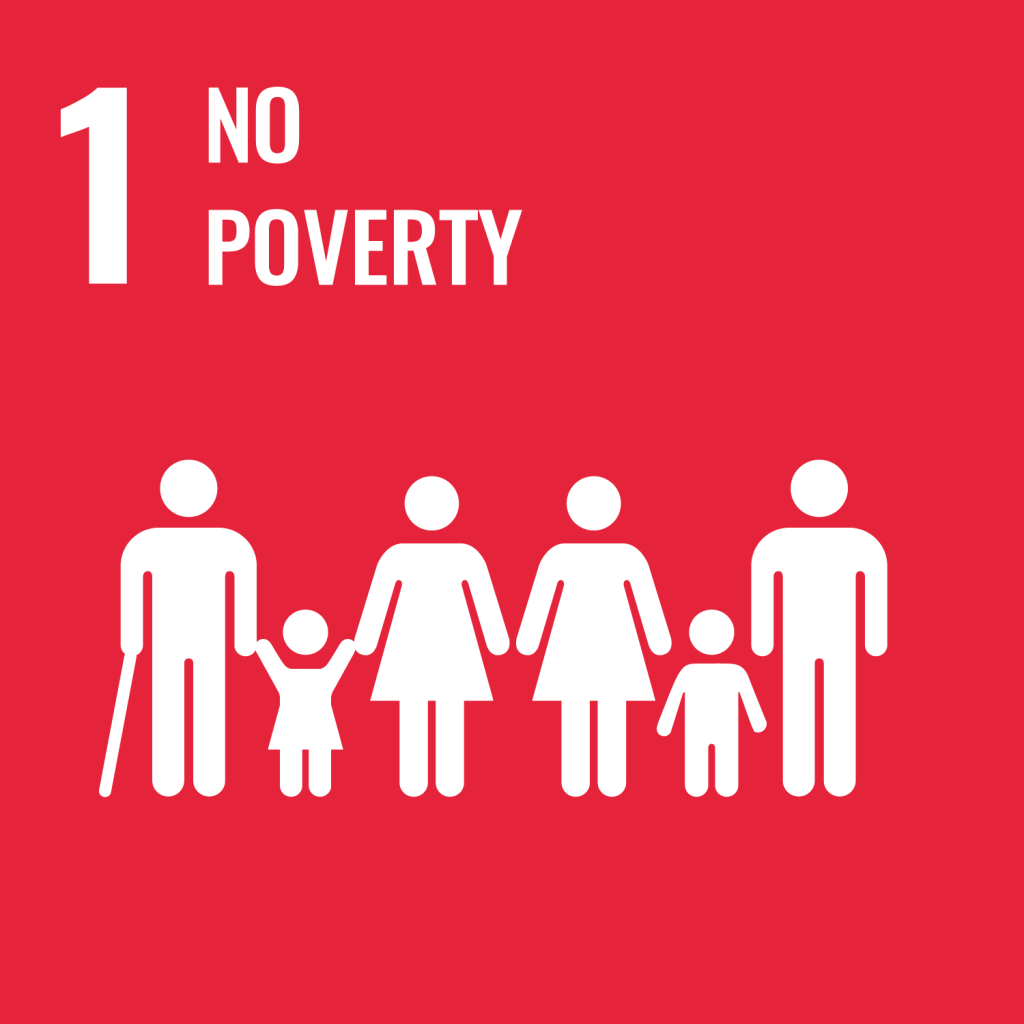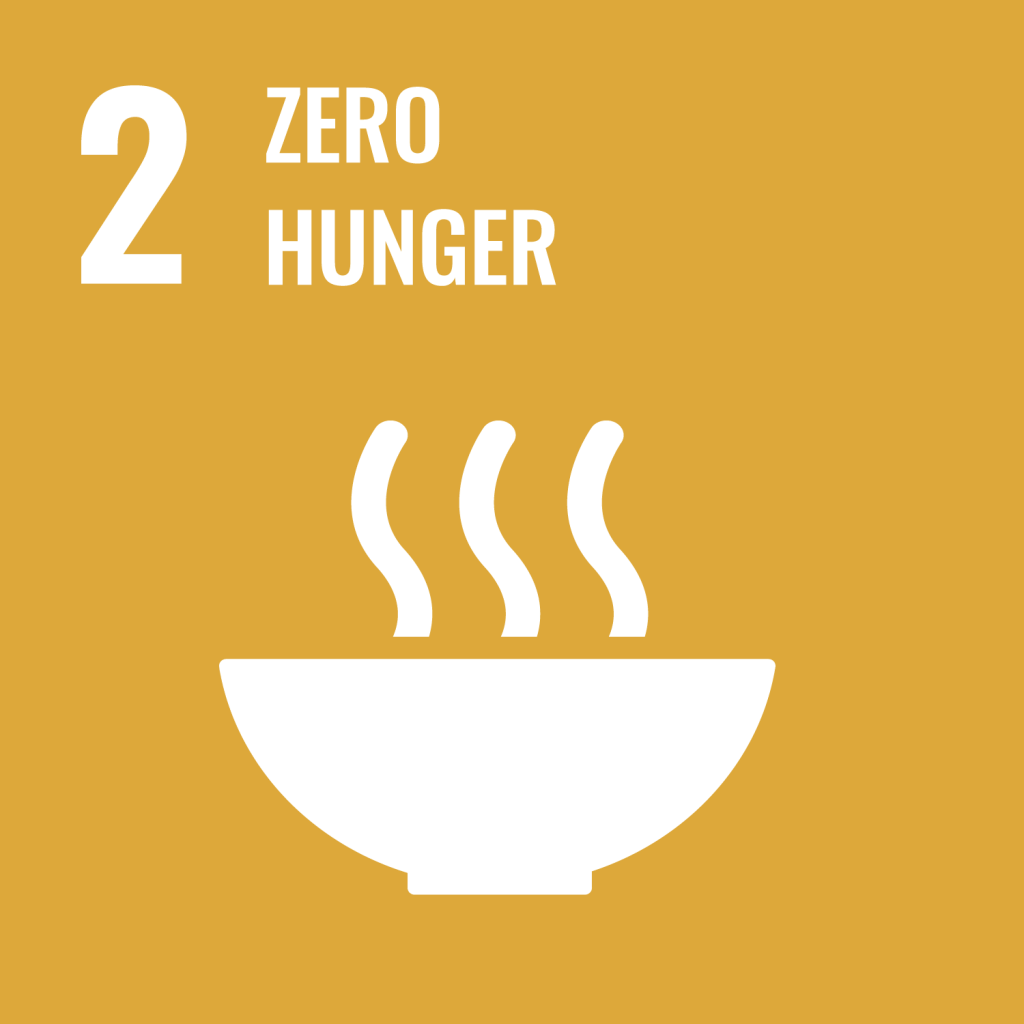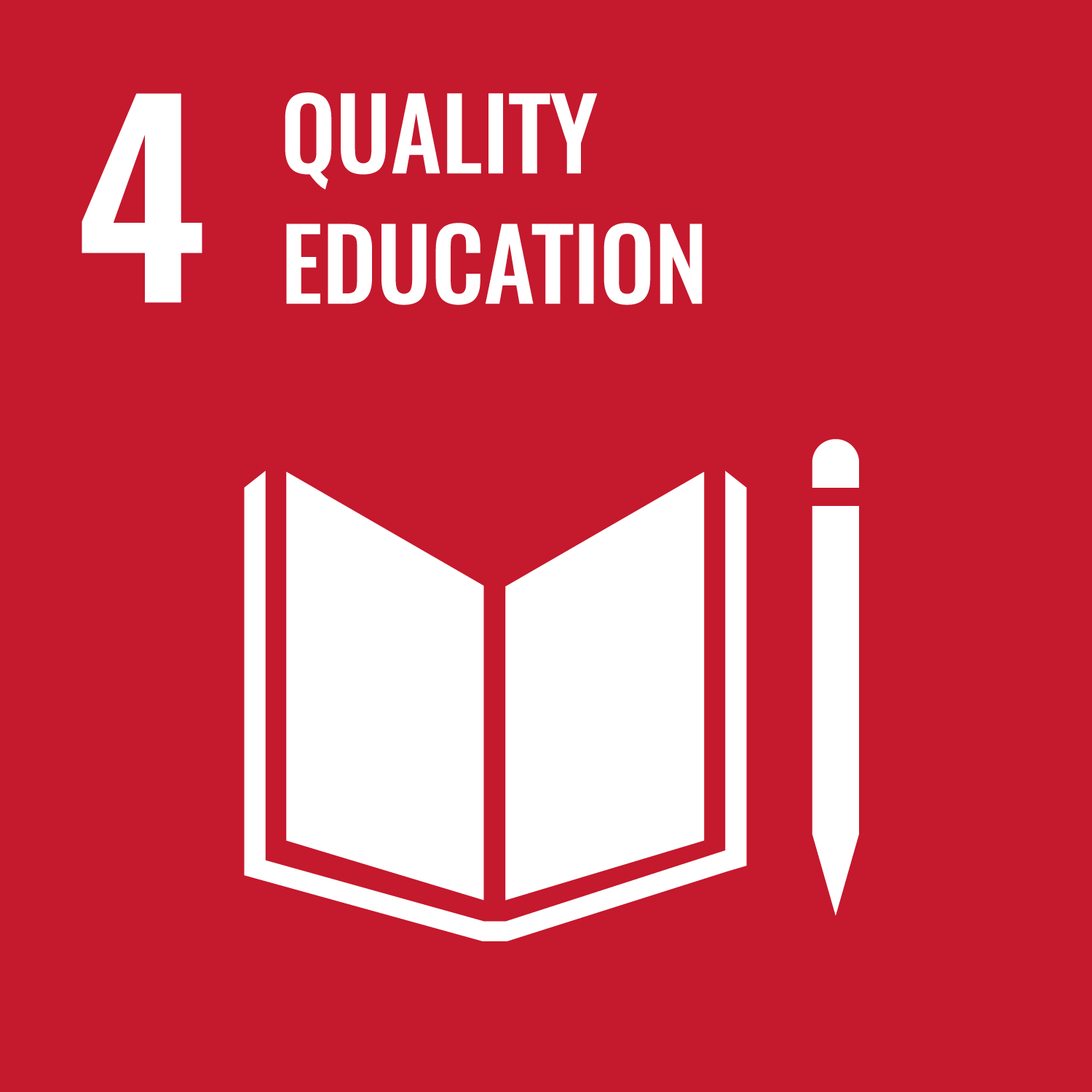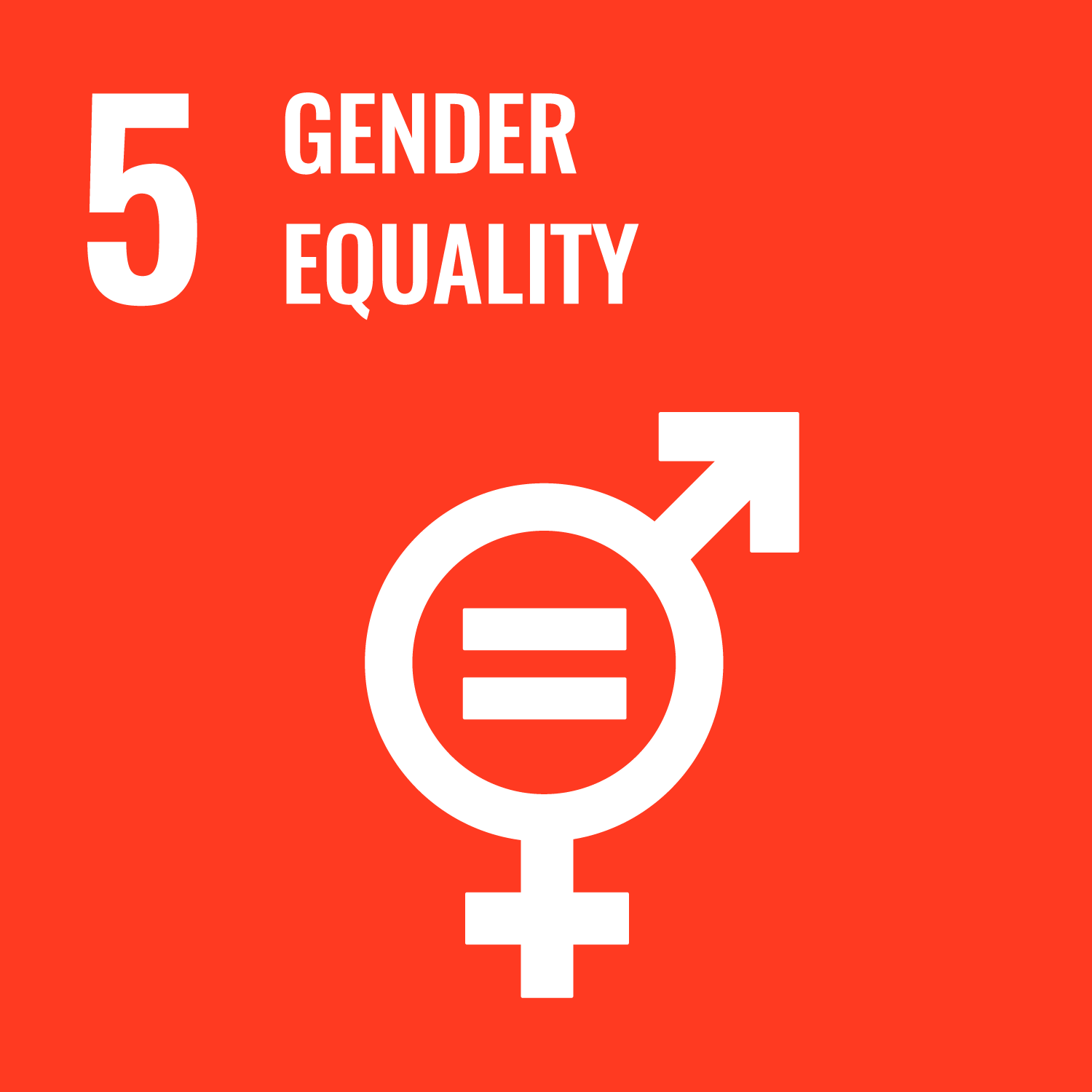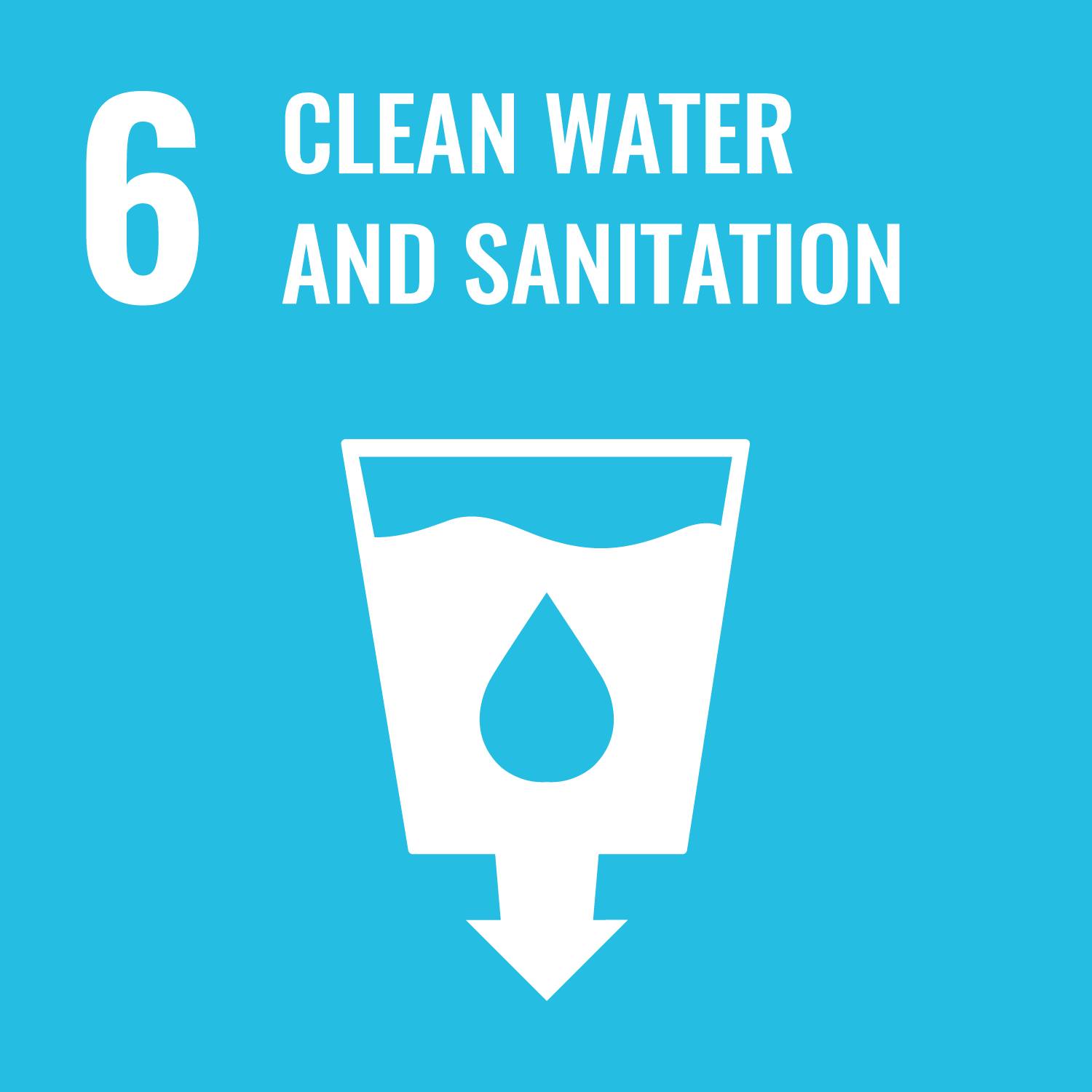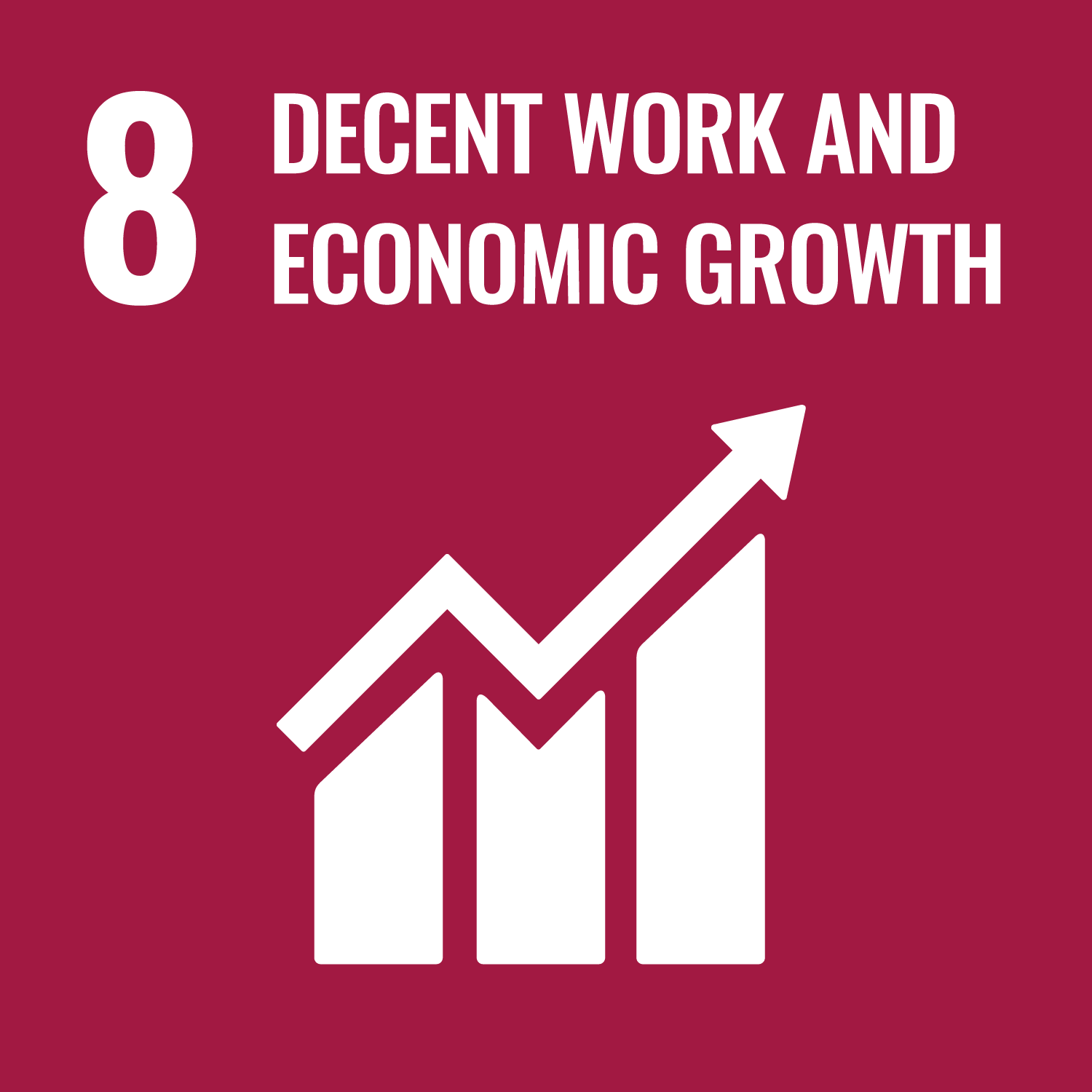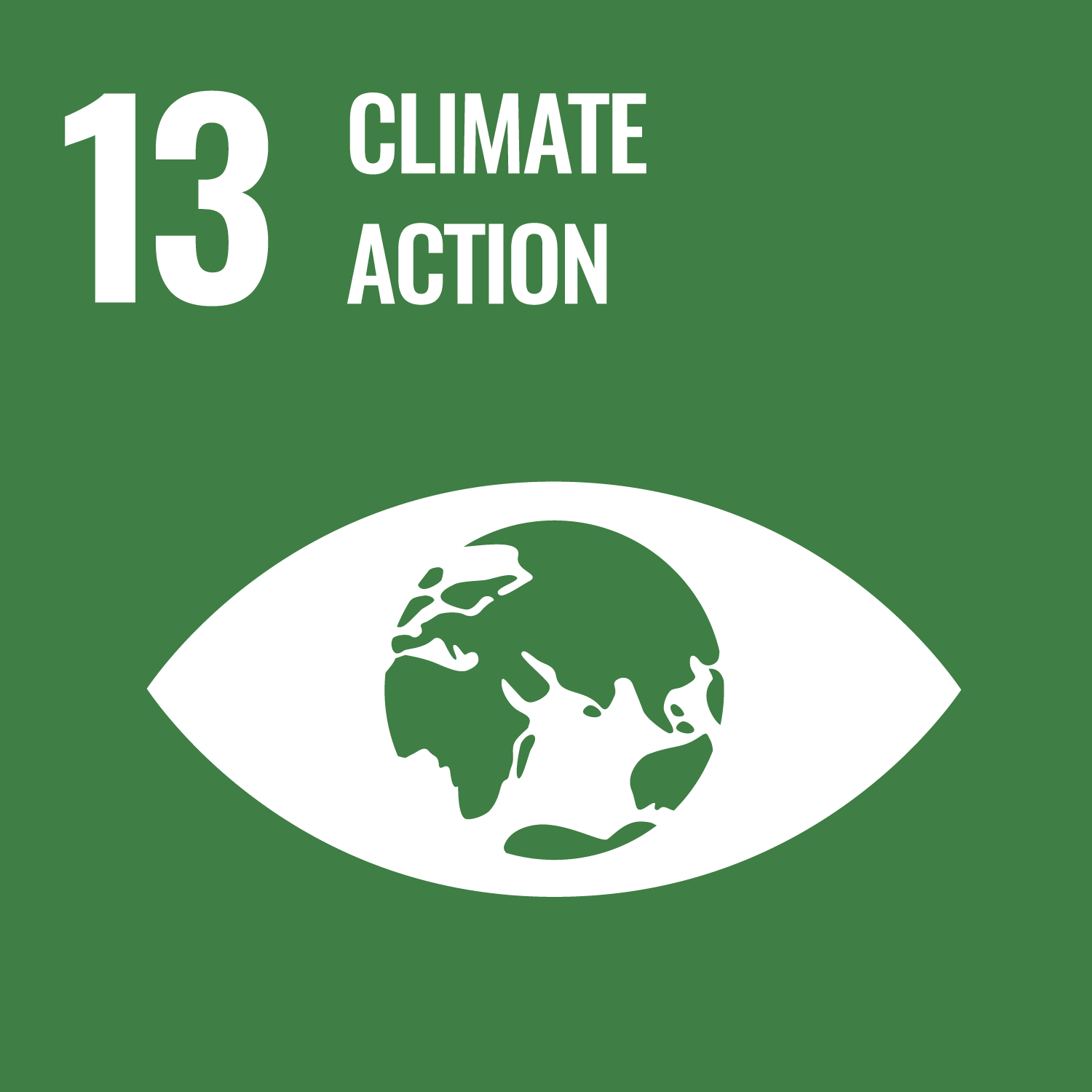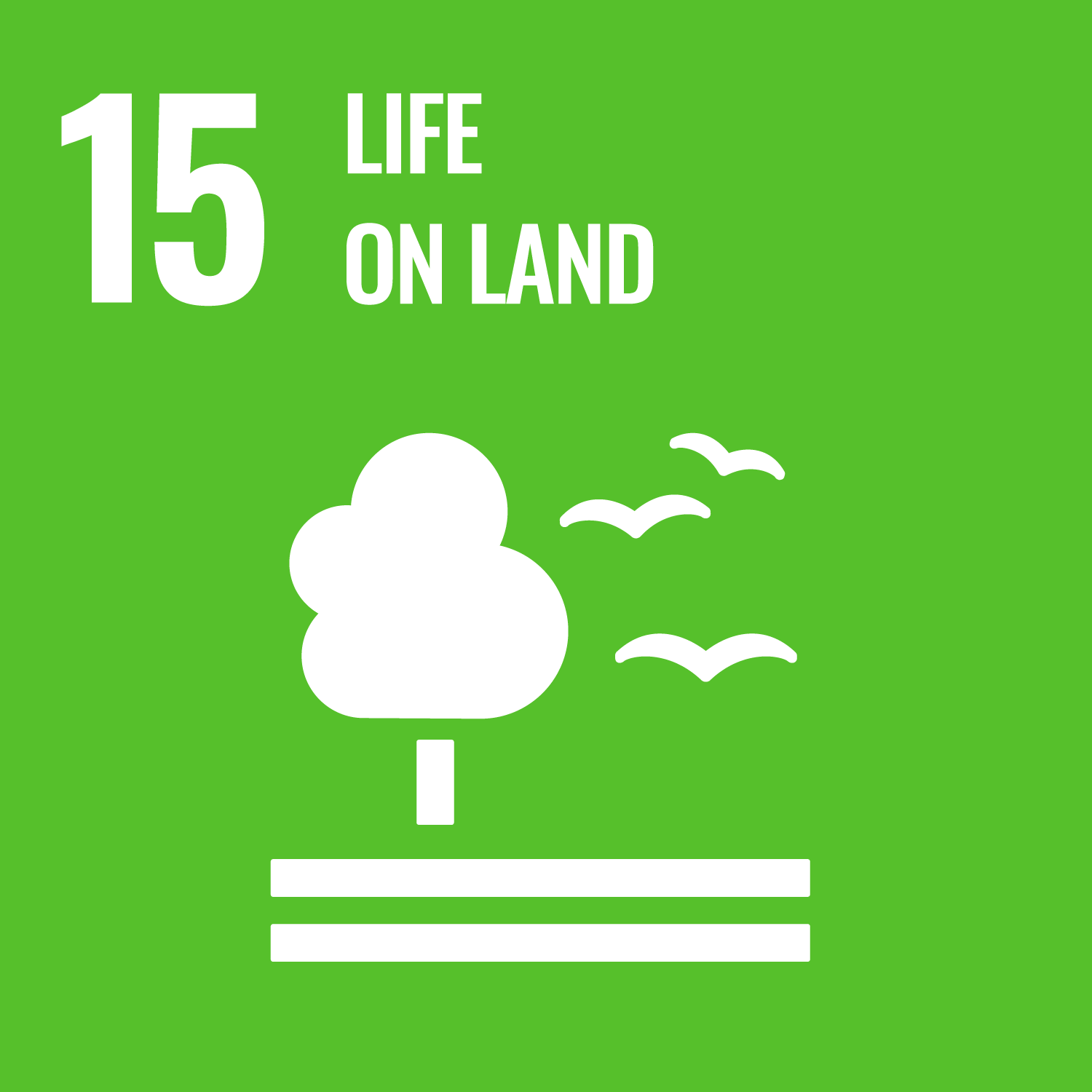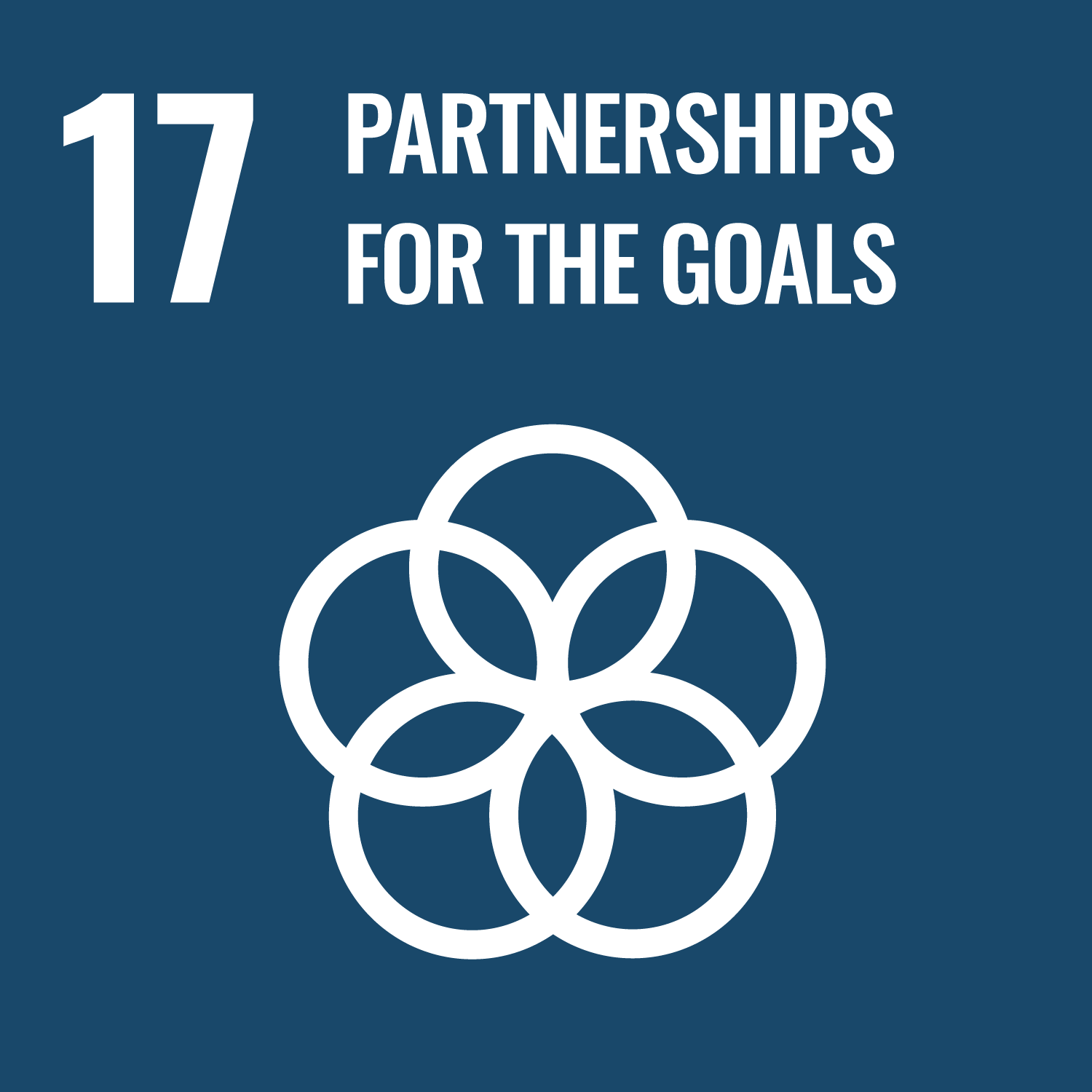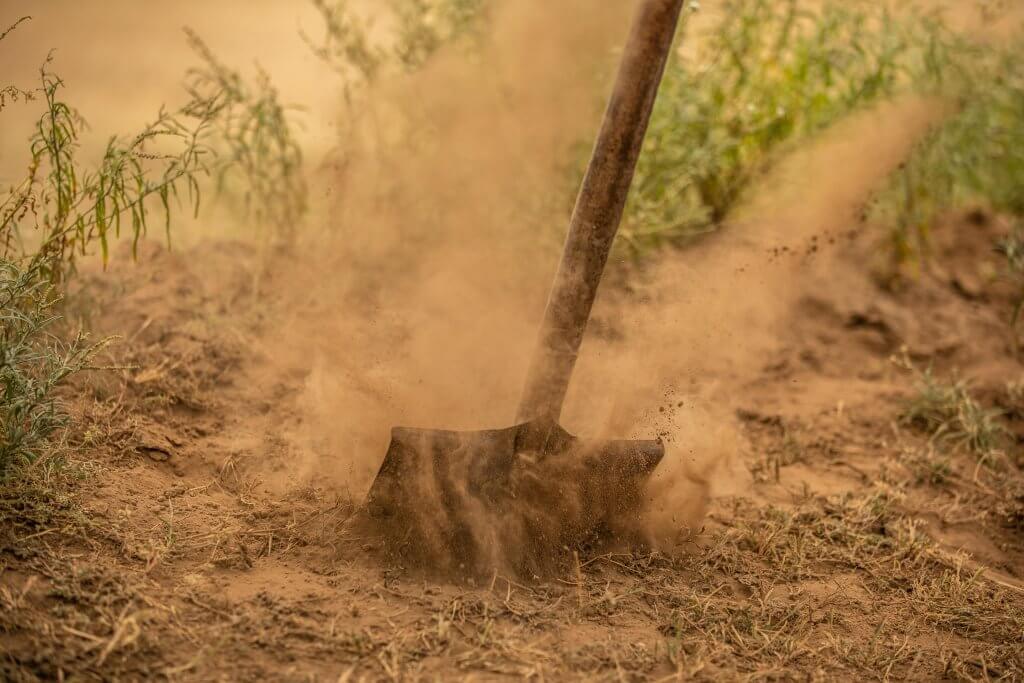
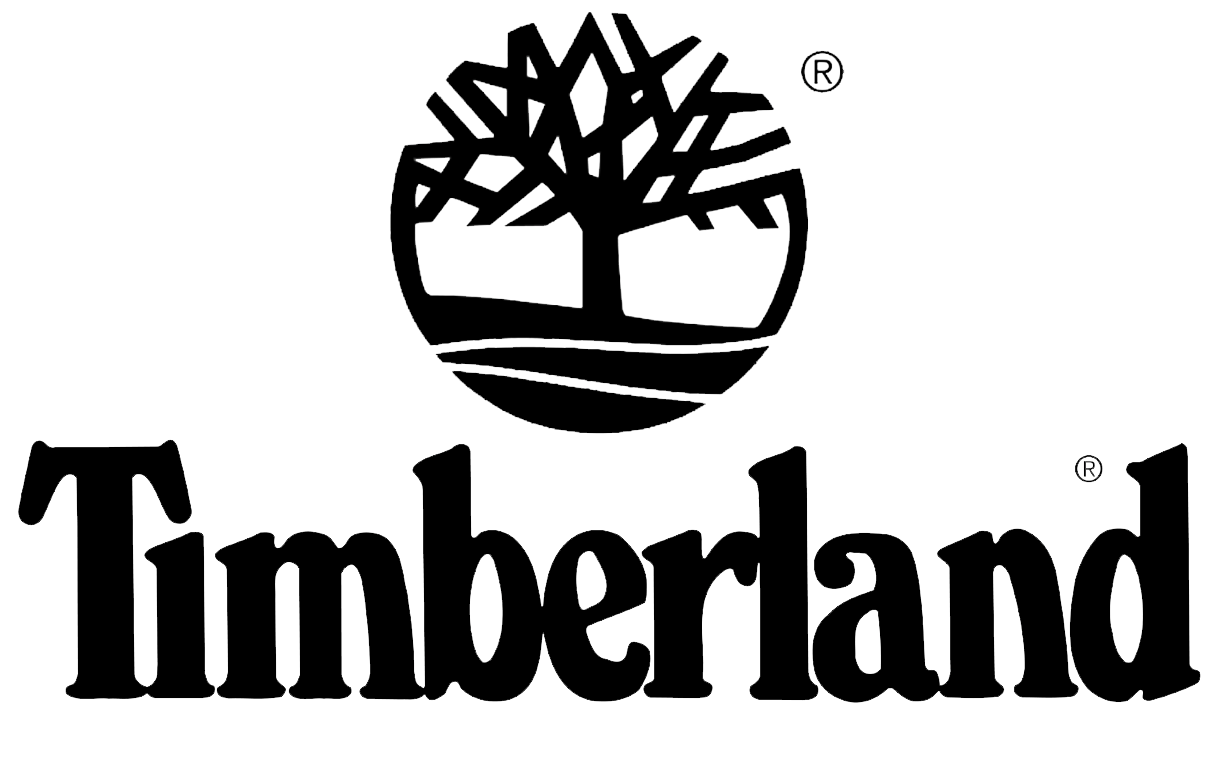



Partner
success stories
From bringing back 14 million trees within 5 years to regreening an area the size of Amsterdam: all our regreening partnerships are unique! All the brands we collaborate with have one thing in common: they directly contribute to a greener and cooler planet. Learn more about our current partnerships.
Partnership cases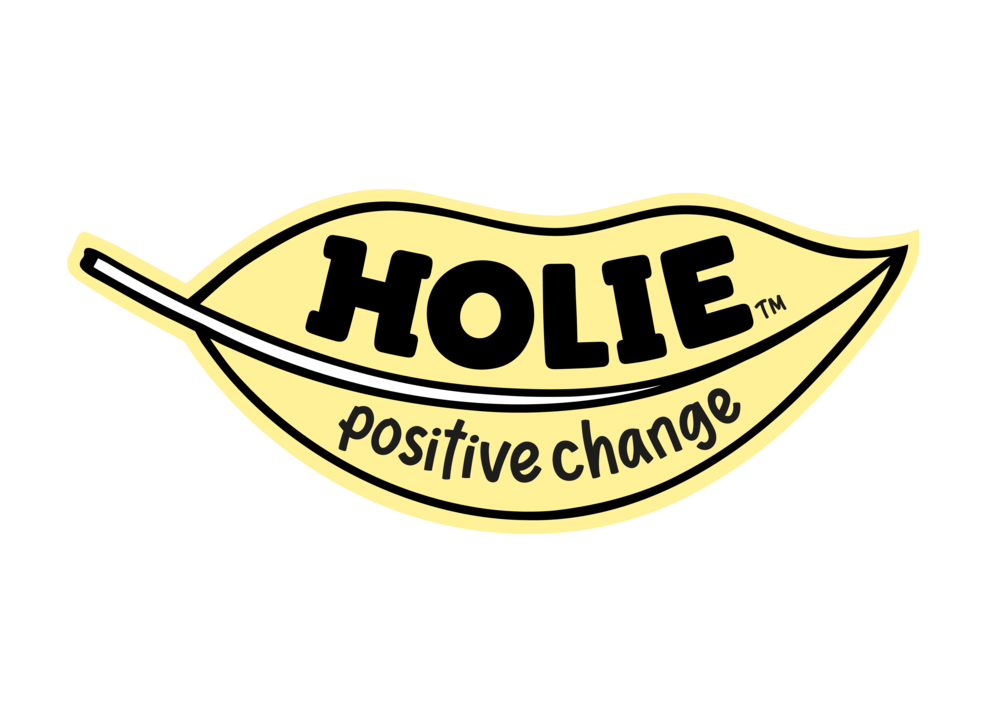


TAKE A LOOK AT OUR IMPACT SO FAR
How your
donation
contributes
By digging in with us, your company supports large-scale regreening projects in Africa. By using nature-based solutions we restore large areas of land, benefitting crop yield, water- and food security, biodiversity and our climate. Check out our 7 impact pillars:
1. Landscape Restoration
Land degradation is an ongoing cycle. With the disappearance of vegetation, the return of new vegetation becomes increasingly difficult: there are fewer nutrients in the soil and water infiltration is inhibited due to the dry, hard top layer of the soil. By using a diverse range of landscape restoration techniques, we give nature a helping hand and bring back vegetation in these degraded areas. With the support of vegetation, the soil becomes healthy and fertile, allowing plants and trees to keep on growing. In this way, returning vegetation helps to restore an entire area!
2. Regenerating trees
We don’t plant trees. Instead, we regenerate trees and support naturally occurring sprouts to grow big again! This is possible because there are many stumps of cut-down trees all across Africa. These formerly large and healthy trees were cut down in the past to be used as firewood, timber, for charcoal production or to make room for agriculture. With the right care, the stumps get the chance to grow into real trees again, in a quicker and more sustainable way than by planting new trees. Since we only uses indigenous tree species and their root systems are often still partly intact, their survival rate is often much higher. In our projects, we restore trees together with farmers using a technique called Treecovery, also known as Farmer Managed Natural Regeneration (FMNR) or Kisiki Hai in Swahili.
3. Retaining water
Due to persistent droughts and overgrazing, the top layer of the soil has become hard in many of our project areas. When it rains, water drains to lower areas, causing erosion of the fertile top layer of the soil. By digging half-round shaped holes, also called water bunds and Earth Smiles, we can retain this water. By digging bunds, we open up the hard top layer so water has more time to enter the soil. This increases the amount of water available for vegetation, allowing the seeds in the soil to grow and the area to regreen. More vegetation also means that more water can be retained within the soil. The root systems of plants and trees make the soil more porous, which promotes infiltration, which in turn allows for more vegetation to grow!
4. Climate Adaptation & Carbon Sequestration
Climate change is one of the greatest challenges of our time. Especially in our program areas, where the effects are already clearly visible. Rains have become unpredictable and more erratic, leading to both droughts and floods. Robust, resilient and adaptive ecosystems are absolutely crucial to cope with these changes – and the presence of vegetation plays a major role in this! By retaining rainwater and bringing back vegetation, landscapes can withstand these extreme situations better, leading to less damage both for nature and the people that rely on these landscapes. The presence of vegetation also decreases soil and atmospheric temperature, which can act as a mitigating buffer against the effects of the changing climate.
Vegetation also takes CO₂ from the atmosphere through a process called photosynthesis. When vegetation is growing, there is a net uptake of CO₂, which decreases the concentration in the atmosphere. By regreening large areas of degraded land, the amount of CO₂ in the atmosphere decreases, which has a mitigating effect on the greenhouse effect and global warming!
**Disclaimer: by regreening degraded landscapes and bringing back vegetation, our programs capture huge amounts of CO₂. However, Justdiggit does not formally compensate for carbon emissions. To compensate for carbon emissions in a formal way, specific certification of the program and the sequestrated carbon is required. This process can take multiple years and is expensive and we prefer to invest these resources into scaling up our regreening efforts. Instead, we make a projection of the amount of carbon to be captured in the next 20 years, based on the projected carbon uptake by Treecovery and performance of similar, already running programs.
5. Inspiring farmers
As part of our regreening mission, we aim to inspire and activate farmers in Africa to start regreening their own land. In our Treecovery project areas, we invite several well-respected and skilled farmers to become part of the Training of Trainers program. Here, we always aim for a balanced division of gender. By completing the training, they become Champion Farmers: ambassadors of regreening that help inspire and teach their fellow farmers in the community how to get started with regreening! Another way we inspire community members to regreen their land is by establishing grass seed banks and through a variety of communication tools. Examples of this are a weekly SMS service, movie roadshows, murals, and a regreening app providing tips and tricks on regreening.
6. Positively impacting local communities
Regreening degraded landscapes not only positively impacts the people directly involved in the projects. It also positively impacts families and communities on a larger scale! For example, when a farmer starts regreening his or her land, the crop yield of the farm can increase. This can also contribute to more income for the farmers and their families. When communal land is regreened, by digging bunds or bringing back trees, the whole community benefits from the results. Greener and healthier land means more areas for their livestock to graze on and thus more food and income for the whole community.
7. Improving biodiversity
Biodiversity is the variety of species on earth. It includes all different types of life: animals, plants, and even microorganisms like bacteria. Rich biodiversity is an important factor to keep ecosystems healthy. Unfortunately, biodiversity on earth is decreasing rapidly; that’s why we need to regreen! By bringing back vegetation and restoring degraded landscapes, the number of different species in an ecosystem can be increased, which leads to an increase in biodiversity.
Donate with
Tax Benefits
Since 2010, Justdiggit has been assigned the status Public Benefit Organisation (PBO), translated in Dutch: Algemeen Nut Beogende instelling (ANBI). Through this status, your periodic donation becomes exempt from tax, which means your contribution will fully benefit our projects and communities! Being assigned the PBO status helps both us and our partners in realising our shared mission: regreening Africa to cool down our planet. Want to find out more about the tax benefits you can receive by making a periodic donation to Justdiggit?
No poverty
End poverty in all forms everywhere to ensure everyone has access to basic resources, services, and a decent standard of living.
Zero hunger
Eliminate hunger by securing enough nutritious food for everyone, while supporting sustainable farming and food production systems.
Quality Education
Ensure inclusive and equitable quality education for all, focusing on lifelong learning and essential skills.
Gender Equality
Achieve gender equality by empowering women and girls, ending discrimination, and ensuring equal opportunities for all genders.
Clean Water and Sanitation
Ensure everyone has access to clean water and adequate sanitation to improve health, hygiene, and environmental sustainability.
Decent Work and Economic Growth
Promote inclusive and sustainable economic growth by creating good jobs, reducing inequality, and fostering innovation.
Climate Action
Take urgent action to combat climate change and its impacts by reducing greenhouse gas emissions and improving resilience.
Life on Land
Protect, restore, and promote sustainable use of terrestrial ecosystems, forests, and biodiversity to maintain a healthy planet.
Partnerships for the Goals
Strengthen global partnerships to achieve sustainable development by mobilizing resources, sharing knowledge, and encouraging collaboration.
"Only together, we can scale our impact and contribute to a green planet, with positive and tangible solutions."

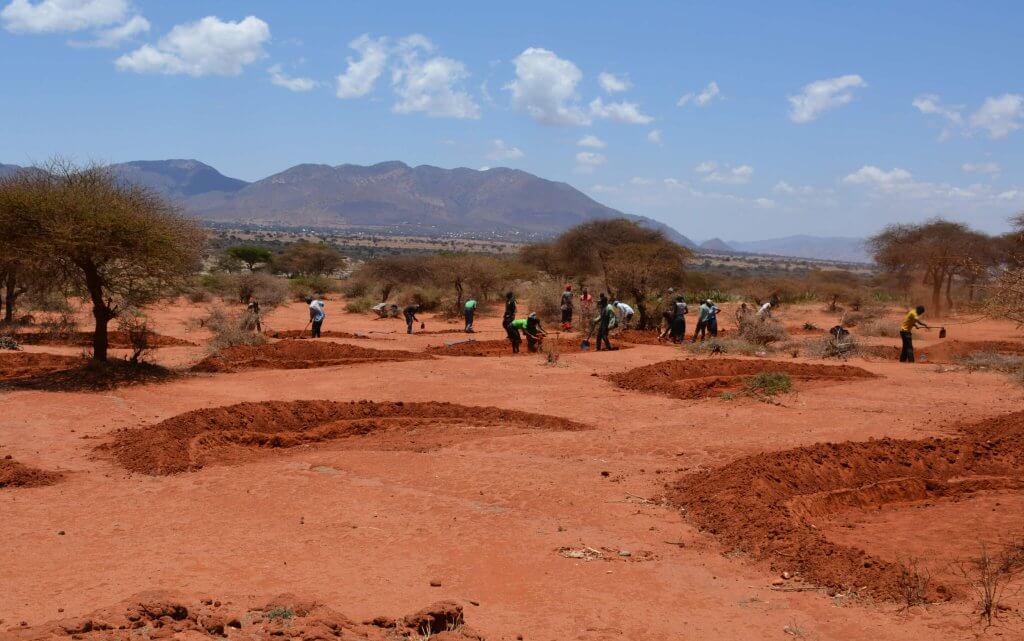
Pembamoto, Tanzania (June 2018 - June 2022)
Drop an email
Are you interested in exploring our common ground and partnering up with Justdiggit? We’re looking forward to reading your message!
"*" indicates required fields
Let's get in touch
In case you want to discuss requests, opportunities or questions personally, you can always give us a call at +31 (0)20 737 23 66

Emma Holthuis
Corporate Funding & Partnerships Manager
